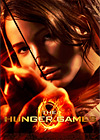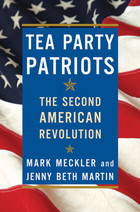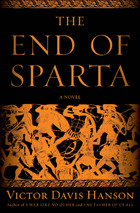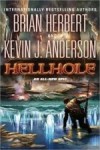 I initially approached this series a little hesitantly. Working as a librarian when the movie was being released made it and its sequels hot items at the time. Despite recommendations from both co-workers and patrons, my level of enthusiasm was about nil. Two weeks ago or go I decided to finally watch the movie. I was very impressed. I find the dysotopian nature of this future a tad bit undeveloped, but the individual emotions that were brought out made a deep impression. The main characters of the Hunger Games performed by Jennifer Lawrence and Josh Hutcherson were great and gave added visual depth to the books when I read them. Woody Harrelson was cast in a role that suited him well as all of his roles seem to be high on something.
I initially approached this series a little hesitantly. Working as a librarian when the movie was being released made it and its sequels hot items at the time. Despite recommendations from both co-workers and patrons, my level of enthusiasm was about nil. Two weeks ago or go I decided to finally watch the movie. I was very impressed. I find the dysotopian nature of this future a tad bit undeveloped, but the individual emotions that were brought out made a deep impression. The main characters of the Hunger Games performed by Jennifer Lawrence and Josh Hutcherson were great and gave added visual depth to the books when I read them. Woody Harrelson was cast in a role that suited him well as all of his roles seem to be high on something.
After watching the film, I was compelled to read the books. I enjoyed the first one as it gave a deeper layer of meaning to the actions portrayed in the films. This is to be expected when limitations on time are enforced in order to make a 142 minute film. It was in the second or third book that I began to become bogged down. The character of Katniss for me seemed to undergo stagnation and character development was limited due to the need for action. I thought that Peeta’s character became perhaps the most complex, although due to outside forces of course. Not to spoil the ending for anyone who may not have read the books, but it was only at the end that Katniss seemed to come alive for me as a person that she was in the first book. This entire perception was no doubt influenced by my attachment to the film and seeing it before reading the book. It will be interesting to see if the next two movies will in any way recapture this and make me re-evaluate my feelings toward the last two novels.

 Tea Party Patriots starts as an early history of the grassroots political movement. It then evolves into a systematic call to arms (figuratively for now) for addressing what a good many people see as fundamentally wrong with our current American system. These issues run the gamut from executive overreach to cultural rejuvenation. As a manifesto, its strength is its ability to clearly lay out possible solutions to very complex problems while maintaining the realism needed to understand that this is a process and will not be accomplished overnight. Mark Meckler and Jenny Beth Martin both stay true to their grassroots in this work by stating that real change will come through influencing every level of government – restating the classic line that “all politics are local.” As our next political cyle looms, it will be interesting to see what impact these concepts will have on both state and national levels. Hopefully, change will occur and I am not taking of the type that President Obama endorses. If you are interested in taking back your country, this is one of the books to read.
Tea Party Patriots starts as an early history of the grassroots political movement. It then evolves into a systematic call to arms (figuratively for now) for addressing what a good many people see as fundamentally wrong with our current American system. These issues run the gamut from executive overreach to cultural rejuvenation. As a manifesto, its strength is its ability to clearly lay out possible solutions to very complex problems while maintaining the realism needed to understand that this is a process and will not be accomplished overnight. Mark Meckler and Jenny Beth Martin both stay true to their grassroots in this work by stating that real change will come through influencing every level of government – restating the classic line that “all politics are local.” As our next political cyle looms, it will be interesting to see what impact these concepts will have on both state and national levels. Hopefully, change will occur and I am not taking of the type that President Obama endorses. If you are interested in taking back your country, this is one of the books to read. In the past, I have often felt that historians transitioning from academic writing to fiction have difficulty in maintaining the flow of plot over details so beloved in academia. Victor Davis Hanson, previously at the University of California – Fresno and currently Senior Fellow at Stanford’s Hoover Institute, has in my opinion suffered from this same difficulty in his inaugural novel, The End of Sparta. Displaying his wide expertise and depth in Greek historical minutia, it would seem that he has left the general layperson behind in a novel no doubt intended for a wide audience. Although my own knowledge of Greek history, literature and language have increased to maybe the level of a sophomore in Classical Studies due to reading this fictionalization of the Boeotian War, I believe that it would appeal mainly to those who have at least a superficial knowledge of such topics.
In the past, I have often felt that historians transitioning from academic writing to fiction have difficulty in maintaining the flow of plot over details so beloved in academia. Victor Davis Hanson, previously at the University of California – Fresno and currently Senior Fellow at Stanford’s Hoover Institute, has in my opinion suffered from this same difficulty in his inaugural novel, The End of Sparta. Displaying his wide expertise and depth in Greek historical minutia, it would seem that he has left the general layperson behind in a novel no doubt intended for a wide audience. Although my own knowledge of Greek history, literature and language have increased to maybe the level of a sophomore in Classical Studies due to reading this fictionalization of the Boeotian War, I believe that it would appeal mainly to those who have at least a superficial knowledge of such topics.